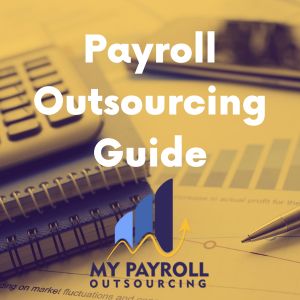
Avoid Costly Payroll Errors: How Outsourcing Can Save Your Business
Payroll management is a critical task for any business, ensuring that employees are paid accurately and on time. However, the complexities involved in payroll processing mean that errors are not uncommon, and these mistakes can have serious consequences. From financial penalties to a loss of employee trust, payroll errors can cost your business in more ways than one. This blog will explore the common payroll errors businesses face, the hidden costs of these mistakes, and how outsourcing payroll can be a game-changer in avoiding these costly pitfalls.
Understanding Common Payroll Errors
Even the most diligent payroll processes are susceptible to errors. Understanding the common mistakes can help you recognize vulnerabilities in your current system and take proactive steps to address them.
Misclassification of Employees
One of the most frequent payroll errors is the misclassification of employees. The distinction between an employee and an independent contractor is crucial, as each classification has different tax obligations, benefits, and legal protections. Misclassifying an employee as a contractor, or vice versa, can result in significant fines and back taxes. This mistake often occurs due to a lack of understanding of the criteria that differentiate employees from contractors, which are determined by factors like:
- Degree of Control: Who controls how, when, and where the work is done?
- Permanency of Relationship: Is the worker employed indefinitely or for a specific project?
- Payment Structure: Is the worker paid hourly, salaried, or per project?

Inaccurate Time Tracking
Accurate time tracking is the foundation of correct payroll processing, especially for businesses that pay employees by the hour. Errors in tracking hours worked—whether due to manual entry mistakes, clock-in/clock-out system failures, or employee oversight—can lead to underpayment or overpayment. These discrepancies not only affect payroll accuracy but can also damage employee relations, as pay errors directly impact employees’ livelihoods.
Failure to Comply with Tax Regulations
Tax laws and regulations are constantly evolving, making compliance a moving target for businesses. Errors in payroll tax calculations, such as incorrect withholding amounts or failure to file on time, can lead to significant penalties from tax authorities. Keeping up with federal, state, and local tax requirements is challenging, and the risk of non-compliance increases if your payroll team lacks up-to-date knowledge and expertise.
The Hidden Costs of Payroll Errors
The consequences of payroll errors extend far beyond simply having to correct a mistake. These errors can incur substantial hidden costs that impact your business’s bottom line and overall health.
Financial Penalties
The most immediate and obvious cost of payroll errors is financial penalties. Government agencies, such as the IRS, impose fines and penalties for inaccuracies in payroll tax filings, late payments, and non-compliance with labor laws. For example, failing to properly classify an employee can result in:
- Back Taxes: Payment of overdue taxes that should have been withheld.
- Penalties: Fines imposed for non-compliance or late payments.
- Interest: Accumulated interest on the unpaid taxes.
These fines can add up quickly, especially for small businesses operating on tight margins.
Loss of Employee Trust
Payroll errors can significantly erode employee trust, particularly if they result in underpayment or delayed payments. Employees rely on timely and accurate paychecks, and mistakes in this area can lead to dissatisfaction, decreased morale, and even increased turnover. Once trust is lost, it can be challenging to rebuild, and the repercussions can affect productivity and overall workplace culture.
Administrative Overhead
Correcting payroll errors is a time-consuming process that requires attention from multiple departments, including HR, accounting, and management. The administrative burden of identifying the error, communicating with affected employees, and rectifying the mistake diverts valuable resources away from other critical business functions. This added overhead can be costly, both in terms of time and lost productivity.

Why Payroll Errors Happen
Understanding the root causes of payroll errors is the first step in preventing them. Several factors contribute to the frequency and severity of payroll mistakes.
Manual Processing
Many payroll errors stem from manual processing, where human error is a constant risk. Manual data entry, calculations, and record-keeping increase the likelihood of mistakes, such as inputting incorrect figures, miscalculating taxes, or missing deadlines. Even with the most meticulous attention to detail, manual processes are inherently prone to error.
Complex Payroll Systems
The complexity of payroll systems can also lead to errors, especially in businesses with varied pay structures, multiple locations, or a mix of salaried and hourly employees. Managing payroll in such an environment requires intricate calculations and strict adherence to multiple regulatory frameworks. Without specialized knowledge and tools, payroll staff may struggle to maintain accuracy, leading to errors.
Lack of Expertise
Payroll is a specialized field that requires up-to-date knowledge of tax laws, labor regulations, and best practices. Many businesses, particularly small and medium-sized enterprises, may not have the resources to hire payroll experts or invest in continuous training for their staff. This lack of expertise increases the likelihood of errors, especially as regulations change and payroll systems become more complex.
How Outsourcing Payroll Can Help
Given the potential for costly payroll errors, many businesses are turning to payroll outsourcing as a solution. Outsourcing payroll can address the root causes of errors and provide a range of benefits that improve overall payroll management.
Access to Expertise
One of the most significant advantages of outsourcing payroll is gaining access to a team of experts who specialize in payroll processing. These professionals are well-versed in the latest tax laws, labor regulations, and payroll best practices. Their expertise ensures that your payroll is accurate, compliant, and up-to-date, reducing the risk of errors and associated penalties.

Automated Systems
Payroll outsourcing providers use advanced automated systems that reduce the reliance on manual processes. Automation minimizes the risk of human error in data entry, calculations, and reporting. Additionally, these systems are often integrated with other business software, such as time-tracking tools and HR management systems, ensuring that payroll data is consistent and accurate across all platforms.
Key Benefits of Automated Payroll Systems:
- Accuracy: Reduced human error leads to more accurate payroll processing.
- Efficiency: Automation speeds up processing time, ensuring timely payments.
- Integration: Seamless integration with other business systems enhances data consistency.
Scalability
As your business grows, so do your payroll needs. Outsourcing provides the flexibility to scale your payroll processing without the need to hire additional staff or invest in new technology. Whether you’re adding new employees, expanding to new locations, or dealing with seasonal fluctuations, an outsourced payroll provider can easily accommodate these changes, ensuring that your payroll remains accurate and timely.
Focus on Core Business
By outsourcing payroll, your business can focus on its core operations rather than getting bogged down by administrative tasks. Payroll processing can be time-consuming and distracting, especially when errors occur. Outsourcing allows you to delegate this responsibility to experts, freeing up your internal resources to focus on growth, innovation, and customer service.

Choosing the Right Payroll Outsourcing Partner
To fully realize the benefits of payroll outsourcing, it’s essential to choose the right partner. Here are some key considerations to keep in mind when selecting a payroll outsourcing provider.
Experience and Reputation
When evaluating potential payroll outsourcing partners, consider their experience and reputation in the industry. Look for providers with a proven track record of serving businesses similar to yours. A well-established provider will have the expertise needed to handle the specific challenges and complexities of your payroll.
Technology and Integration
The technology used by the payroll provider is critical to ensuring accuracy and efficiency. Make sure the provider’s systems are up-to-date and capable of integrating with your existing software, such as HR management and accounting systems. This integration ensures seamless data flow and reduces the risk of errors caused by inconsistent or outdated information.
Questions to Ask About Technology:
- Is the payroll system cloud-based or on-premise?
Can it integrate with our current HR software?
How often is the system updated for compliance?

Compliance and Security
Compliance with tax laws and labor regulations is non-negotiable in payroll processing. Ensure that the outsourcing provider is fully compliant with all relevant laws and regulations and has robust security measures in place to protect your sensitive payroll data. This includes encryption, secure access controls, and regular audits to ensure data integrity.
Cost Considerations
While outsourcing payroll can save money in the long run, it’s important to consider the cost structure of the provider. Look for a provider that offers transparent pricing with no hidden fees. The cost should align with the level of service provided, and it’s essential to weigh the cost against the potential savings from reduced errors and increased efficiency.
Payroll errors can be costly, time-consuming, and damaging to your business. However, by understanding the common causes of these errors and the hidden costs they incur, you can take proactive steps to mitigate the risks. Outsourcing payroll is a strategic solution that offers access to expertise, advanced technology, and scalability, all of which can help you avoid costly payroll mistakes.

